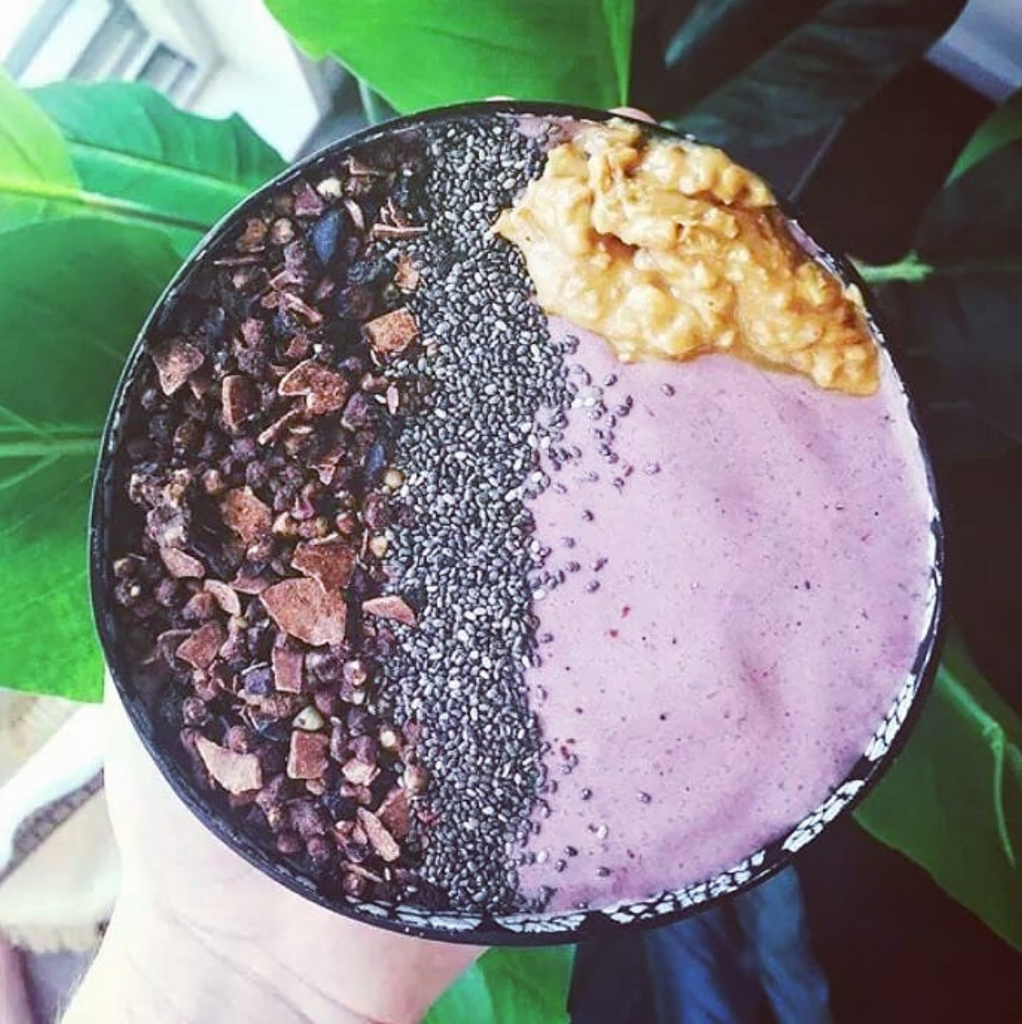
Eating poorly can make it difficult to replenish, repair and regenerate the skin. The result can be a poor defense, poor skin health, and a state of inflammation in the body. The goal then is to adopt an anti-inflammatory dietary approach, including nutrient-dense foods.
In general, pro-inflammatory foods are those that are high in sugar, saturated fats, are highly processed, or excessive in calories. Adding plenty of nutrient and anti-oxidant rich, anti-inflammatory foods into the diet on a regular basis can help address inflammation and improve healing and the overall health of the skin and body, too.
Top Foods that reduce inflammation and benefit your skin:
1. Almonds are an excellent source of Vitamin E, an important antioxidant, that like Vitamin C, can help protect the skin from photo-damage and also contribute to healthy cell structure.
They also provide healthy unsaturated fats that are heart-protective and provide essential building blocks for cell membranes, which regulate what goes into and out of cells. (It’s no good having all the right ingredients if they cannot get inside the cells or if they leak out!)

2. Avocados contain heart- and skin-beneficial Vitamin E and (monounsaturated fatty acids (MUFAs) that contribute to forming a natural oil barrier that may help reduce itchy, dry skin, keeping it healthy and pliable.
Increasingly there are a number of recipes that incorporate avocado into homemade skin care treatments such as face masks for oily skin. Here is a simple one for you to try from nutritionstripped.com

3. Biotin-rich foods. Both almonds and avocados contain this nutrient but so do vegetables such as sweet potato and cauliflower (Try this creamy, dreamy cauliflower soup recipe! from RecipeTinEats)
Biotin (Vitamin B7) is probably the most important B vitamin when it comes to forming healthy skin, hair, and nails. Gut bacteria also manufacture biotin within the normal digestive process.

4. Blueberries and the Berry family in general, are an excellent source of Vitamin C, which helps fight free radicals produced by sun exposure, pollution and the effects of daily living, providing the first line of defense for our skin against the outside world.
In addition, blueberries have strong anti-inflammatory compounds essential to keeping skin healthy and vibrant. Try them on blueberry pancakes,Yum!

5. Eggs are another important source of biotin. Biotin is found in the yolk of the egg, so eating just the whites, while a good source of protein, won’t get you enough biotin for healthy skin. A lack of biotin can lead to dry or flaky skin, often on the face or scalp. Biotin deficiency, which can be caused by a poor diet or by taking certain medications (e.g. some antibiotics) is also associated with dry and brittle nails.
Egg yolks are also a rich source of lutein, a nutrient that helps boost skin hydration, elasticity, the helpful surface oils of the skin, as well as protection from the sun. A study published in the Journal of Skin Pharmacology and Physiology, showed significant skin-protective benefits in women who consumed a source of lutein compare to placebo. Most people can enjoy a whole egg on a daily basis in an overall healthy diet, even if they are managing their cholesterol.

6. Green tea not only provides an important source of water, which is essential to keeping your skin hydrated and moist, but it’s a rich source of polyphenols including EGCG and other antioxidants that help defend the body and the skin from the pollution and daily effects of living and turning over cells.
Polyphenols help also in protecting the skin from the effects of UV damage offering some photoprotection against the sun. And green tea may help boost your metabolism, too, a nice bonus for a skin-friendly beverage.

7. Salmon, sardines, and mackerel contain omega-3 essential fatty acids (EFAs) that help protect a healthy heart and brain and also play an important role in reducing inflammation and dry skin. EFAs are essential to the production of the skin’s natural, healthy oil barrier. Salmon also contains a carotenoid called astaxanthin that gives it its ‘salmon’ color and helps preserve good skin elasticity. Strong anti-inflammatory foods, like wild salmon, can help reduce the symptoms and occurrence of inflammatory skin conditions that cause redness and swelling like acne, rosacea and certain rashes.
Sadly the feed given to farmed salmon may be laced with unwanted artificial chemicals like antibiotics, to control disease due to overcrowding, and chemicals that give the fish their pink colour (wild salmon develop it naturally). Salmon farms have also been accused of polluting the oceans, fostering disease, and spreading sea lice. It may be wise to do your research before spending your money on farmed salmon; if unsure, only eat wild caught salmon, sardines and mackerel.

8. Vitamin-C rich foods nourish the skin. Excellent sources include kiwifruit, oranges, red and green peppers, grapefruit, vegetable and tomato juice, strawberries, broccoli, cantaloupe, pineapple, mangos, blueberries and more. Vitamin C deficiencies can create dry skin, poor healing of scratches and cuts, bruising, and reduced elasticity of the skin. As previously noted, Vitamin C helps produce the collagen ‘glue’ of our skin and vitamin C-rich foods also seem to help speed wound healing. This is one of several nutrients that’s important to consume on the inside and also commonly used in skin care products for topical application, as well. This vitamin is degraded by heat so it is best to eat these foods raw or stir-fried.

9. Turmeric is a potent source of natural antioxidants and anti-inflammatory and its popularity is growing exponentially. Good for healthy skin overall, research suggests that turmeric, the golden spice that gives yellow curry its colour, may help reduce the risk of skin cancer.
In a 2005 laboratory study in the journal, Cancer, researchers reported that curcumin, the active compound in turmeric, killed and stopped the growth of melanoma skin cancer cells, the most deadly of the skin cancer types. And a recent 2009 study demonstrated that curcumin and galangal (a spice in the ginger family) also offered strong protection against UV damage that causes increases in human melanoma cells.
I even grate it onto my muesli, incorporate it into smoothies and salad dressings, as well as stews, casseroles, and stir-fries! How do you creatively include it in your diet? Unfortunately, it is reported that turmeric interferes with a number of prescription drugs by enhancing their action, so be cautious if you are taking these.

10. Water. Last but by no means least and arguably the most important “nutrient” for all body functions, water helps dissolve minerals and nutrients so that they are more accessible to the body, as well as helping transport waste products out of the body. It is these two functions that make water so vital to all aspects of skin health, including moisture, elasticity, flexibility, and tone.
You can get up to 20% of your water needs met through foods, particularly in those fruits and vegetables, salads, and soups you should incorporate into your diet every day. Are you drinking enough water to make up the shortfall? Your body and skin will love you if you are!!
Bon appetit!


